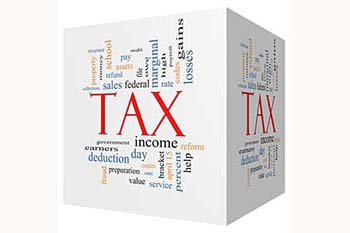CLE Presentation by Shamsey Oloko
Interest on Home Equity Loans Often Still Deductible Under new Law
Interest on Home Equity Loans Still Deductible Under New Law
The Internal Revenue Service today advised taxpayers that in many cases they can continue to deduct interest paid on home equity loans.
Responding to many questions received from taxpayers and tax professionals, the IRS said that despite newly-enacted restrictions on home mortgages, taxpayers can often still deduct interest on a home equity loan, home equity line of credit (HELOC) or second mortgage, regardless of how the loan is labelled. The Tax Cuts and Jobs Act of 2017, enacted Dec. 22, suspends from 2018 until 2026 the deduction for interest paid on home equity loans and lines of credit, unless they are used to buy, build or substantially improve the taxpayer’s home that secures the loan.
AN ANALYSIS OF THE TAX CUTS AND JOBS ACT
January 2018
AN ANALYSIS OF THE TAX CUTS AND JOBS ACT
On December 22, 2017, after much, well-publicized legislative skirmishes, President Donald Trump signed into law H.R. 1, otherwise known as the “Tax Cuts and Jobs Act.” Provisions affecting individuals are generally effective beginning December 31, 2017 and expire on December 31, 2025. Most business-related provisions are permanent and are effective beginning December 31, 2017.
This new law is, by all accounts, the most significant revisions to the U.S. tax code since 1986, affecting almost all individual and business taxpayers. Our firm’s general assessment of the new law will therefore be a two-part series: this first part covers changes to individual taxpayers, and the second part will cover changes to business taxpayers.
Tax Implications of Reverse Mortgages
In the last fifteen years or so, television viewers, especially those watching late at night, have been inundated with commercials for reverse mortgages. A reverse mortgage allows a mortgagor, 62 or older, to continue living and retain title in the home; while receiving back his or her equity in the form of a monthly cash payment. The original home owner continues to pay for property insurance, taxes, and maintenance. If a home owner moves, sells, or dies, he or she (or his or her estate) must repay the loan.
The Most Overlooked Tax Deductions, Part 2
Many taxpayers overlook the long list of deductions that they may take when completing and filing their tax returns. The IRS has estimated that millions of taxpayers overpay their taxes each year because they fail to avail themselves of all of the possible deductions. Here is the second part of our multi-part blog on the most overlooked tax deductions:
INVESTMENT RELATED DEDUCTIONS
Amortizing Bond Premiums
The IRS offers assistance for taxpayers who purchase taxable bonds for more than face value. The purpose of such a purchase is to capture a yield higher than any offered by current market rates. Down the road, the IRS will tax the extra interest that this higher yield produces.
Is The $1,100,000 Limitation On Mortgage Debt For Purposes Of Determining Deductible Interest Expense Applied On A Per-Taxpayer Or A Per-Residence Basis?
Is the $1,100,000 limitation on mortgage debt for purposes of determining deductible interest expense applied on a per-taxpayer or a per-residence basis?
Related Tax Rules or Regulations
Internal Revenue Code Section 163(h)(3) allows a deduction for qualified residence interest on up to $1,000,000 of acquisition indebtedness and $100,000 of home equity indebtedness. Should your mortgage balance (or balances, since the mortgage interest deduction is permitted on up to two homes) exceed the statutory limitations, the mortgage interest deduction is limited to the amount applicable to only $1,100,000 worth of debt.
Case Study
HOW MUCH OF MY MORTGAGE CAN I REALLY DEDUCT?
What can taxpayers deduct from their mortgage payments? What portion of a payment consisting of principal, interest, taxes and insurance, if any, is deductible? To deduct the expenses of owning a home, at least those costs paid in your mortgage payment, taxpayers must first itemize deductions.
Simply put, interest paid on a mortgage is tax deductible. Points that are paid to lower the interest rate are also deductible. Taxpayers can deduct the interest paid on first and second mortgages up to $1,000,000 in mortgage debt (the limit is $500,000 if married and filing separately). Any interest paid on first or second mortgages over this amount is not tax deductible. If the loan is not a secured debt on your home, it is considered a personal loan, and the interest you pay generally isn’t deductible.



